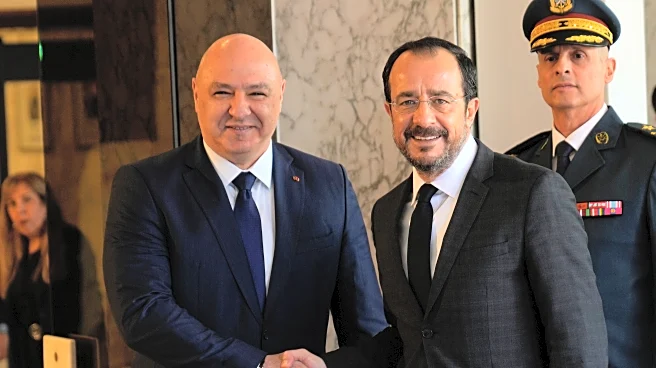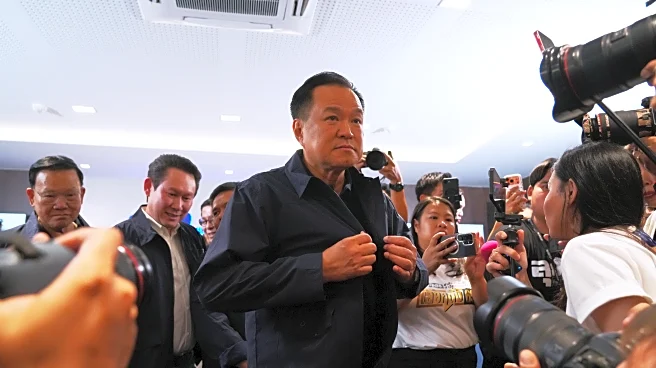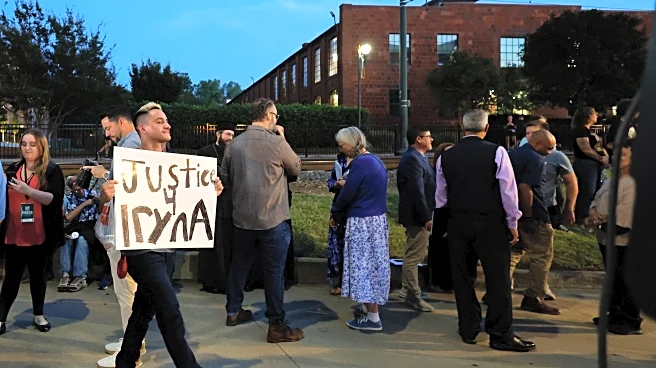BEIRUT (AP) — Lebanon and Cyprus signed a long-delayed sea border agreement on Wednesday, ending an almost 20-year impasse that had stalled some oil and gas exploration in the Mediterranean Sea, as Europe seeks alternatives to Russian fuel.
Lebanese President Joseph Aoun and Cypriot counterpart Nikos Christodoulides signed the agreement at the Baabda presidential palace outside the Lebanese capital, Beirut, finalizing an initial deal first inked in 2007.
Christodoulides called the deal a “historic agreement" in a joint press conference with Aoun, who in turn said the signing sends “a clear ... invitation” to anyone who wants to cooperate with Lebanon.
While Cyprus ratified the 2007 agreement, Lebanon didn't because of its maritime border dispute with Israel, as well as its internal political crises. Nicosia in 2012 offered to mediate to end the impasse, but a breakthrough didn't come until 2022, leading to a landmark agreement between Beirut and Tel Aviv, following U.S. mediation.
Lebanon hopes offshore exploration could help it generate resources after years of crippling economic crisis. It is yet to reach a maritime border agreement with neighboring Syria, which suffers its own political upheaval after a lightning rebel offensive ousted long-term President Bashar Assad.
Cyprus is set to make the best out of the deal as European countries aim to reduce reliance on importing gas from Russia, following its invasion of Ukraine. Christodoulides last week said that some of the estimated 20 trillion cubic feet of gas discovered off Cyprus could reach European markets as soon as 2027.
The delay in finalizing the agreement has prevented Cyprus from widening its hydrocarbon search, as it could not explore in areas adjacent to Lebanese waters.
Lebanon has struggled with near-daily Israeli strikes on its southern region despite reaching a tenuous ceasefire nearly a year ago. Aoun has endorsed negotiations with Israel for a cessation of hostilities, amid fears of a new war in the country.
The Mediterranean country also faces challenges to revitalize an ailing economy that has left many Lebanese in despair, by improving ties with Saudi Arabia and other Gulf countries, long frustrated by the Hezbollah militant group, which has resisted recent attempts to disarm.
—
Associated Press journalist Menelaos Hadjicostis in Nicosia, Cyprus contributed to this report.
















